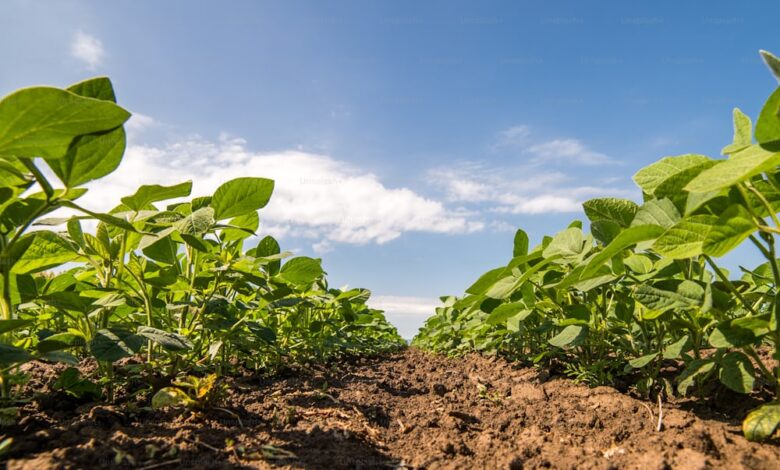7 Key Benefits of Using Crop Management Software

In today’s rapidly evolving agricultural landscape, farmers face an array of challenges, from unpredictable weather patterns to the constant pressure to optimize resources while maintaining sustainable practices.
Crop management software is a powerful tool that is reshaping the way farmers approach their work. With its ability to harness data, streamline operations, and enhance decision-making, crop management software is quickly becoming indispensable in modern agriculture.
Imagine a tool that not only helps farmers plan their crop cycles efficiently but also provides real-time insights into everything from soil conditions to pest management. This is where the true power of crop management software lies.
In this blog, we’ll explore seven key benefits of using crop management software, from increased efficiency and productivity to better yield and improved crop quality.
What is Crop Management Software
Crop management software is a digital tool designed to streamline and optimize agricultural operations. It assists farmers in planning, monitoring, and managing various aspects of crop production. This software encompasses a range of features aimed at enhancing efficiency and productivity in farming practices.
At its core, crop management solutions help farmers efficiently plan their crop cycles, including tasks such as scheduling planting, irrigation, fertilization, and harvest. They also help organize and track essential data related to crop cultivation, such as soil conditions, weather forecasts, and pest management.
One of the key features of crop management software is its ability to provide real-time monitoring and analytics. Farmers can access up-to-date information about their fields, enabling them to make informed decisions promptly. This includes monitoring crop growth, detecting anomalies or diseases, and adjusting cultivation practices as needed.
Furthermore, crop management software often integrates with other technologies, such as GPS and drones, allowing for precision agriculture. This integration enables farmers to map their fields accurately, optimize resource usage, and minimize waste.
Popular crop management software tools in the market include FarmLogs, which offers features like field mapping, crop health monitoring, and yield forecasting. Another notable example is Climate FieldView, which is known for its data visualization capabilities and compatibility with various farm equipment and sensors.
Similarly, Agworld is widely used for its comprehensive farm management features, including budgeting, task allocation, and inventory tracking. These software tools cater to the diverse needs of farmers, providing customizable solutions to improve efficiency and profitability in crop production.
When crop management software is used in an agricultural operation, it offers several key benefits.
7 of those benefits are listed below:
Benefit #01: Increased Efficiency and Productivity
Crop Management Software enhances efficiency and productivity by streamlining tasks like planning, planting, monitoring, and harvesting. It leverages data analytics for optimized decision-making, ensuring better resource allocation and minimizing waste. Centralized management simplifies processes, saving farmers time and effort. By providing real-time insights, it enables proactive adjustments, resulting in higher yields and reduced operational costs. Automated workflows eliminate manual errors and enhance precision in every stage of crop management. Overall, the software empowers farmers to make informed decisions swiftly, driving continuous improvement and profitability in agricultural operations.
Benefit #02: Better Yield and Improved Crop Quality
Crop Management Software optimizes planting, irrigation, and fertilization for increased yield and improved crop quality. It analyzes data to determine the best planting times, optimal irrigation schedules, and precise fertilization needs. Detecting pests and diseases early through data analysis enables timely interventions, reducing crop damage. Studies and user testimonials indicate potential yield increases ranging from 10% to 30% when utilizing such software. This technology empowers farmers with actionable insights, leading to healthier crops, higher yields, and, ultimately, improved profitability.
Benefit #03: Enhanced Crop Monitoring and Precision Agriculture
Crop Management Software offers Enhanced Crop Monitoring and Precision Agriculture, enabling real-time monitoring of crop health, growth, and environmental conditions. It integrates seamlessly with IoT devices and drones for efficient data collection. By implementing precision agriculture techniques it facilitates targeted interventions, ensuring optimized resource utilization and increased crop yields. This proactive approach allows farmers to identify issues promptly, such as pest infestations or nutrient deficiencies, and take corrective actions swiftly. As a result, farmers can make informed decisions, maximize productivity, and minimize environmental impact.
Benefit #04: Sustainable Practices and Environmental Impact Reduction
Crop management software uses effective resource conservation through precise fertilization and irrigation, enabling sustainable farming. By tracking and reducing chemical use, it promotes environmentally favorable behaviors. It supports soil health and biodiversity through data-driven insights, both of which are essential for sustainable agriculture. Through waste reduction and resource allocation optimization, the program considerably lessens its environmental effect. With the use of this software, farmers are better equipped to balance environmental stewardship and production. In the end, it helps create an agricultural system that is more robust and sustainable, which is advantageous for both farmers and the environment.
Benefit #05: Compliance and Regulatory Management
Crop management software provides a strong solution for regulatory management and compliance, which are crucial for abiding by national and international agricultural laws. It ensures smooth audits and certification procedures by methodically tracking and documenting a variety of actions. The program improves traceability and transparency throughout the agricultural supply chain by centralizing data and procedures. Farmers can minimize the chance of regulatory infractions by effectively monitoring compliance requirements. Additionally, the program offers notifications and updates in real-time, informing users of any changes to rules and reducing the risk of noncompliance. All in all, it facilitates compliance with industry norms and regulations by streamlining regulatory procedures and saving time and effort.
Benefit #06: Cost Reduction and Financial Management
Financial management and cost reduction are two major advantages of crop management software. It controls resources effectively, maximizing input costs. It finds efficient cost-saving options through data analysis. It also improves budgeting and financial planning procedures, which increases profitability. With the help of this software, farmers can allocate resources sensibly and make sure that every dollar is spent. It simplifies financial processes, enabling farmers to spend money more wisely and eventually increasing their profit margin. All things considered, crop management software enables farmers to get superior financial results by means of more astute resource allocation and scheduling.
Benefit #07: Enhanced Collaboration and Data Sharing
By enabling stakeholder communication and data sharing, crop management software improves teamwork. It makes it possible to provide real-time data insights to agronomists, farmers, and other collaborators. The software guarantees an easy flow of data by means of a simple interaction with external systems. A more cooperative atmosphere promotes better decision-making and better agricultural results. Agronomists and other professionals are easily accessible to farmers, who may exchange thoughts and quickly receive responses. Stakeholders may collaborate more successfully and boost the sustainability and productivity of crop management methods by utilizing the potential of data sharing.
Conclusion
It is evident that technology is the primary factor propelling the advancement of contemporary agriculture. At the front of this technology revolution, crop management software provides farmers with the means to not only survive but also prosper in an increasingly complicated environment.
Crop management software is laying the groundwork for a more lucrative and sustainable future by utilizing data to inform decisions, optimize operations, and boost productivity. It gives farmers the capacity to maximize resource allocation, limit environmental impact, and make well-informed decisions—all while boosting output and profitability.
Hence, today’s Ag businesses must embrace crop management software and other technology’s potential to improve their business practices and stay competitive in the future.



